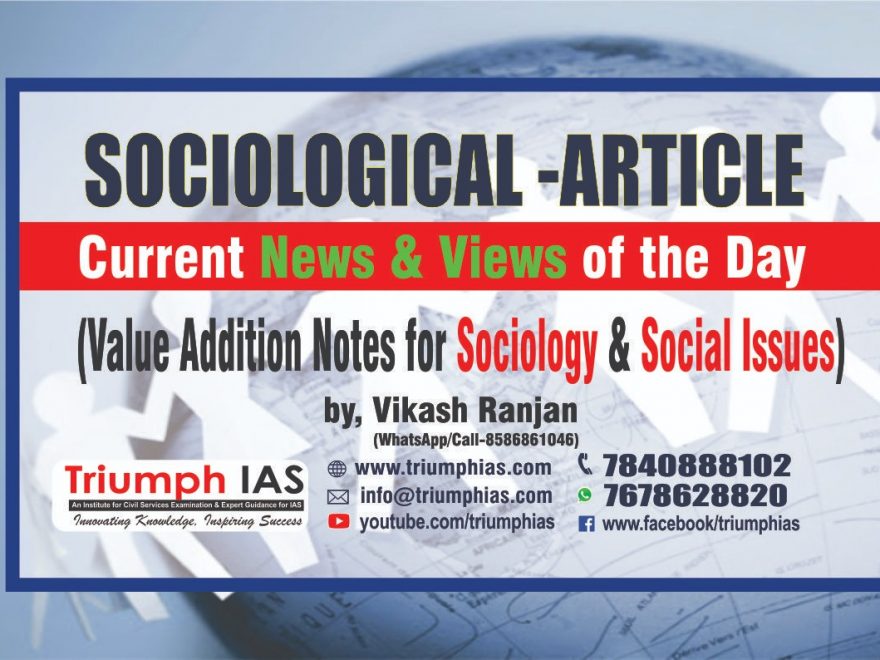COVID-19 and disintegrating world order
Relevance: Prelims/Mains: G.S paper II: Polity : International & G.S paper III: Economy & Sociology: Politics ans society
Introduction
- COVID-19 will fundamentally transform the world’s balance of power, traditional conceptions of national security, and the future of globalisation.
- The rampant spread of COVID-19 is also a failure of the contemporary world order and its institutions.
- COVID-19 has exposed the worst nativist tendencies of the global leadership in the face of a major crisis.
- Also, United Nations Security Council took so long to meet to discuss the pandemic is a ringing testimony to the UN’s insignificance.
Failed efforts of regional institutions
- Regional institutions haven’t fared any better. Indian Prime Minister’s SAARC initiative was short-lived.
- The EU, the most progressive post-national regional arrangement, stood clueless when the virus spread like wildfire in Europe. Its member states turned inward for solutions: self-help, not regional coordination, was their first instinct.
- All this said that the global institutional framework is unrepresentative and its agenda is focused on high-table security issues.
How China is recovering from COVID-19?
- Reports indicate that China has now managed the outbreak of COVID-19, and its industrial production is recovering even as that of every other country is taking a hit. The oil price slump will make its recovery even faster.
- When the greatest military power found itself in denial mode and the members of the EU were looking after their own interests, China appeared to use its manufacturing power to its geopolitical advantage.
- China has offered medical aid and expertise to those in need; it has increased cooperation with its arch-rival Japan; and President of China spoke to the UN Secretary General on how the international community can fight the virus.
- Chinese actions are a smart economic investment for geopolitical gains. This will aid China’s claims to global leadership and showcase how the Belt and Road Initiative is the future of global connectivity.
- COVID-19 will further push the international system into a world with Chinese characteristics.
Role of state government amid crisis
- The ability of big corporations to dictate the production, stocks, supply chains will be limited by increased state intervention to avoid unpredictable supply sources, avoid geopolitically sensitive zones, and national demands for emergency reserves.
- However, State intervention in economic matters are the easy way out, and that’s precisely what states will do once the crisis is over. It would be return of the ‘Licence Raj’ through the backdoor, not a push for inclusive and responsible globalisation.
- Though the states has failed in its inability to save from the pandemic notwithstanding its claims about national security preparedness, they will return as the last refuge of the people in the coming age of mass disruption.
- With the severe beating that globalisation has taken, state-led models of globalisation and economic development would be preferred over (big) corporates-led globalisation.
- However, the important question is whether the state has any incentive to take on big capital. Recently, states have become used to protecting the interests of their corporations, often at the cost of the general public. Consider, for instance, that the first response of many Western states was to protect their capital markets than be concerned about public health.
Undesirable social and economical effects of COVID-19
- Another undesirable outcome of the pandemic would be a spike in various forms of discrimination. Global Societies could become more self-seeking leading to further pushback against liberal policies regarding migration and refugees.
- Within India too, there could be a trend towards discrimination, with ‘social distancing’ producing undesirable social practices. Puritan claims based on birth and class and the associated declarations about hygiene could become sharper.
- New questions are likely to be asked about the source of goods. More stringent imposition of phytosanitary measures by advanced states on products emanating from the less developed countries might become the new normal.
- Lockdowns and travel restrictions could potentially legitimise the rhetoric around border walls in more conservative countries.
Conclusion
The global institutional architecture of the 1940s cannot help humanity face the challenges of the 2020s. Hence, nothing less than a new social contract between states and the international system can save our future.
However, the Dutch historian Johan Huizinga showed, the period following the Black Death in Europe turned out to be the “waning of the Middle Ages.” For him, the real story was not just the economic aftereffects of a pandemic, but the mysticism and irrationalism that eventually brought an end to a universalist culture. Likewise, it is entirely possible that COVID-19 will precipitate the “waning of globalization.”
For more such notes, Articles, News & Views Join our Telegram Channel.
Click the link below to see the details about the UPSC –Civils courses offered by Triumph IAS. https://triumphias.com/pages-all-courses.php

